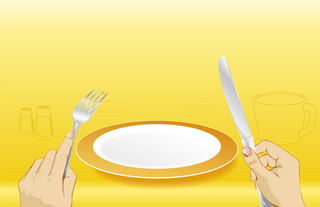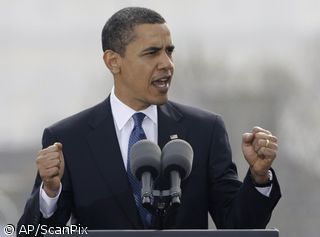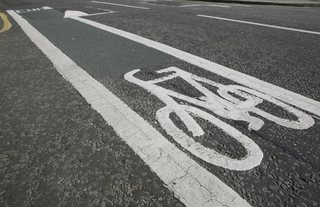Touted by the East German leadership as a barrier against "fascist provocation," the Wall was really an attempt to stop waves of skilled workers and educated people leaving a repressive state
Published:
10 November 2004 y., Wednesday
Touted by the East German leadership as a barrier against "fascist provocation," the Wall was really an attempt to stop waves of skilled workers and educated people leaving a repressive state. Around 3 million fled between 1945 and 1961, when the Wall went up. In time, it became etched in the Western consciousness as a symbol of inhumanity. More than 100 people were picked off by border guards while trying to escape; dozens of others were killed by mines.
However, by November 9, 1989, deep political shifts had prepared the ground for an earthquake. Leader Erich Honecker had been forced to resign and 4 million people had demonstrated for democracy. On that momentous day, the government's spokesman Guenther Schabowski announced that East Germans could go to West Germany if they applied for a visa.
Within minutes, people swarmed around the wall's border posts in what amounted to a siege. At midnight, they broke through to West Germany. That sounded the death knell for the Cold War and set the stage for German reunification a little more than a year later. But 15 years on, a very different kind of mass mobilisation took place. The demonstrations in Leipzig this August highlighted the economic plight of the former East German regions, where unemployment is double that of the western part.
When the old regime collapsed, many skilled workers found themselves on the wrong side of supply-and-demand economics.
Šaltinis:
euronews.net
Copying, publishing, announcing any information from the News.lt portal without written permission of News.lt editorial office is prohibited.
The most popular articles
 On 15 October, the President of the EP unveiled the names of the winners of the EP Prize for Journalism 2009.
more »
On 15 October, the President of the EP unveiled the names of the winners of the EP Prize for Journalism 2009.
more »
 “Lisbon treaty” - you may have heard quite a bit about it recently. Still baffled?
more »
“Lisbon treaty” - you may have heard quite a bit about it recently. Still baffled?
more »
 The 2009 World Food Day on 16 October is marked by an EU stronger than ever in its commitment to improve access to food around the world.
more »
The 2009 World Food Day on 16 October is marked by an EU stronger than ever in its commitment to improve access to food around the world.
more »
 One of the first signs of the new political mood in the European Parliament after the election is the reversal of its position over rules on working times for lorry drivers.
more »
One of the first signs of the new political mood in the European Parliament after the election is the reversal of its position over rules on working times for lorry drivers.
more »
 Do you feel like doing a 5-month traineeship in the European Parliament? If so then Thursday 15 October is the deadline to apply.
more »
Do you feel like doing a 5-month traineeship in the European Parliament? If so then Thursday 15 October is the deadline to apply.
more »
 The European Commission has provided € 32 million in assistance to 22 African Caribbean and Pacific (ACP) countries 1 over a period of 6 years to help fight poverty and to increase access to and quality of sexual and reproductive health services and commodities.
more »
The European Commission has provided € 32 million in assistance to 22 African Caribbean and Pacific (ACP) countries 1 over a period of 6 years to help fight poverty and to increase access to and quality of sexual and reproductive health services and commodities.
more »
 Challenging a long-standing taboo, U.S. President Barack Obama made a pledge to end restrictions on gays in the U.S. military.
more »
Challenging a long-standing taboo, U.S. President Barack Obama made a pledge to end restrictions on gays in the U.S. military.
more »
 The economic crisis has pushed an extra 90 million people into extreme poverty in the developing world and made 23 million people unemployed.
more »
The economic crisis has pushed an extra 90 million people into extreme poverty in the developing world and made 23 million people unemployed.
more »
 In the Chinese capital where the nation's one-child limit is rigidly enforced twins, triplets and quads get together to celebrate the fact they have brothers and sisters.
more »
In the Chinese capital where the nation's one-child limit is rigidly enforced twins, triplets and quads get together to celebrate the fact they have brothers and sisters.
more »
 It's called the Brompton folding bike world championships but it really is an awfully British affair.
more »
It's called the Brompton folding bike world championships but it really is an awfully British affair.
more »